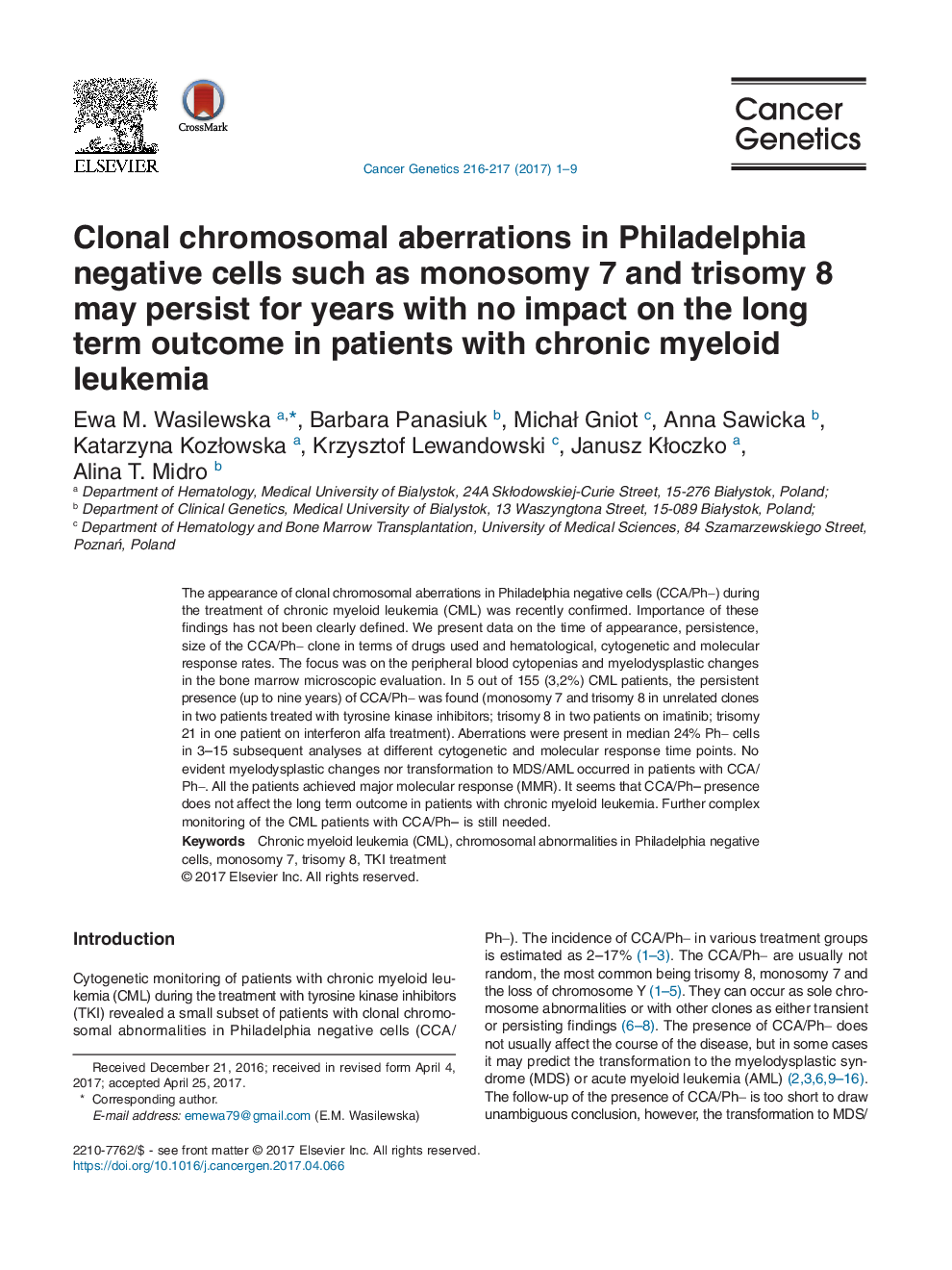| Article ID | Journal | Published Year | Pages | File Type |
|---|---|---|---|---|
| 5525021 | Cancer Genetics | 2017 | 9 Pages |
â¢Clonal chromosomal aberrations in Philadelphia negative cells (CCA/Phâ) may persist for years.â¢Monosomy 7 developed during treatment of chronic myeloid leukemia (CML) does not predict myelodysplastic syndrome transformation despite the presence of cytopenias.â¢Achieving of major molecular response in CML patients does not depend on presence of CCA/Phâ.
The appearance of clonal chromosomal aberrations in Philadelphia negative cells (CCA/Phâ) during the treatment of chronic myeloid leukemia (CML) was recently confirmed. Importance of these findings has not been clearly defined. We present data on the time of appearance, persistence, size of the CCA/Phâ clone in terms of drugs used and hematological, cytogenetic and molecular response rates. The focus was on the peripheral blood cytopenias and myelodysplastic changes in the bone marrow microscopic evaluation. In 5 out of 155 (3,2%) CML patients, the persistent presence (up to nine years) of CCA/Phâ was found (monosomy 7 and trisomy 8 in unrelated clones in two patients treated with tyrosine kinase inhibitors; trisomy 8 in two patients on imatinib; trisomy 21 in one patient on interferon alfa treatment). Aberrations were present in median 24% Phâ cells in 3-15 subsequent analyses at different cytogenetic and molecular response time points. No evident myelodysplastic changes nor transformation to MDS/AML occurred in patients with CCA/Phâ. All the patients achieved major molecular response (MMR). It seems that CCA/Ph- presence does not affect the long term outcome in patients with chronic myeloid leukemia. Further complex monitoring of the CML patients with CCA/Ph- is still needed.
